2020 marked the 100th anniversary of the 19th Amendment. To commemorate the anniversary, we put together a list of books and articles from our list that provide insightful analysis, and cover key figures and pivotal moments. This list is by no means exhaustive. We are fortunate to have an extensive backlist on the history of women’s suffrage and the women’s movement. We invite you to browse our women and gender studies books here, and to browse our journals on JSTOR and Project Muse to find more related titles.
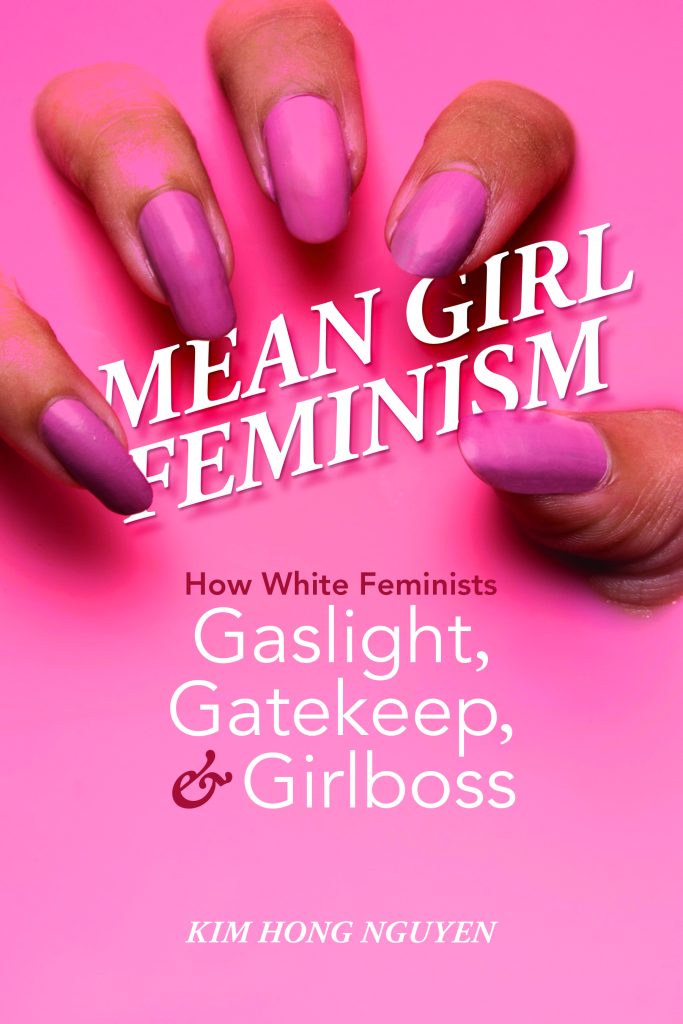
Mean Girl Feminism: How White Feminists Gaslight, Gatekeep, and Girlboss
By Kim Hong Nguyen
Mean girl feminism encourages girls and women to be sassy, sarcastic, and ironic as feminist performance. Yet it coopts its affect, form, and content, from racialized oppression and protest while directing meanness toward people in marginalized groups.
Kim Hong Nguyen examines four types of white mean girl feminism prominent in North American popular culture: the bitch, the mean girl, the power couple, and the global mother.
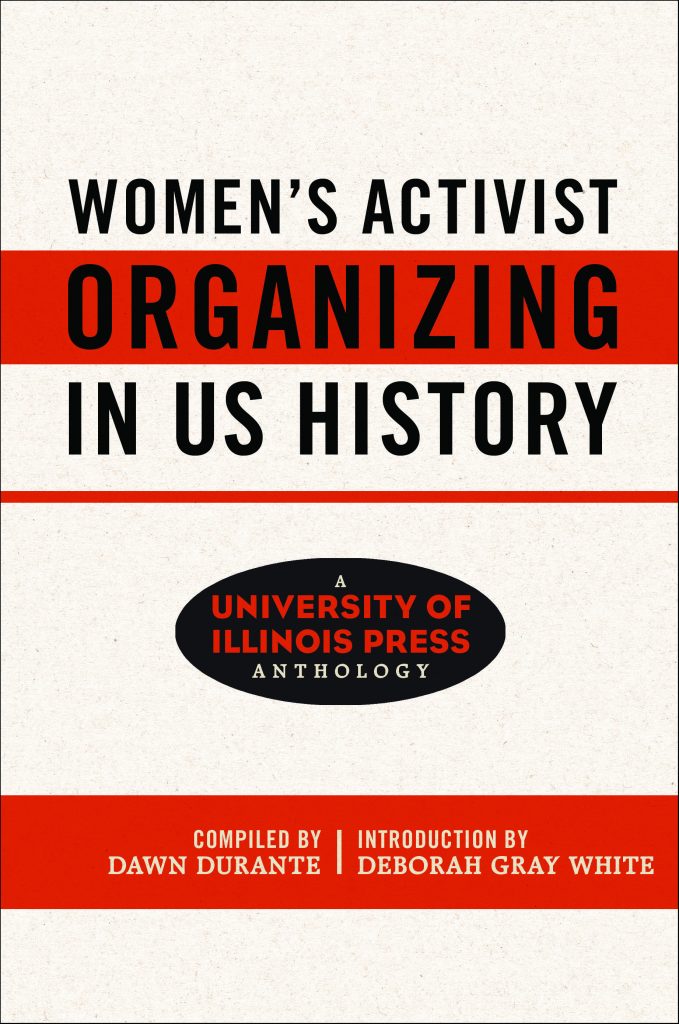
Women’s Activist Organizing in US History: A University of Illinois Press Anthology
Compiled by Dawn Durante and Introduction by Deborah Gray White
Insightful and provocative, Women’s Activist Organizing in US History draws on both classic texts and recent bestsellers to reveal the breadth of activism by women in the United States in the nineteenth and twentieth centuries.
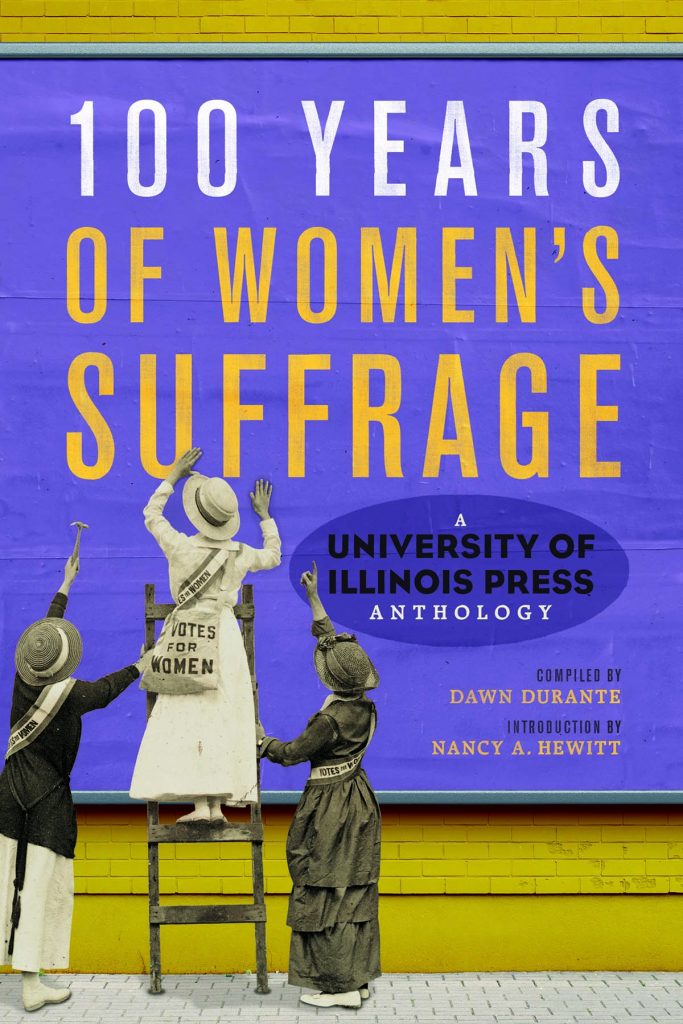
100 Years of Women’s Suffrage: A University of Illinois Press Anthology
Compiled by Dawn Durante and Introduction by Nancy A. Hewitt
100 Years of Women’s Suffrage commemorates the centennial of the Nineteenth Amendment by bringing together essential scholarship on the women’s suffrage movement and women’s voting previously published by the University of Illinois Press. With an original introduction by Nancy A. Hewitt, the volume illuminates the lives and work of key figures while uncovering the endeavors of all women to gain, and use, the vote.
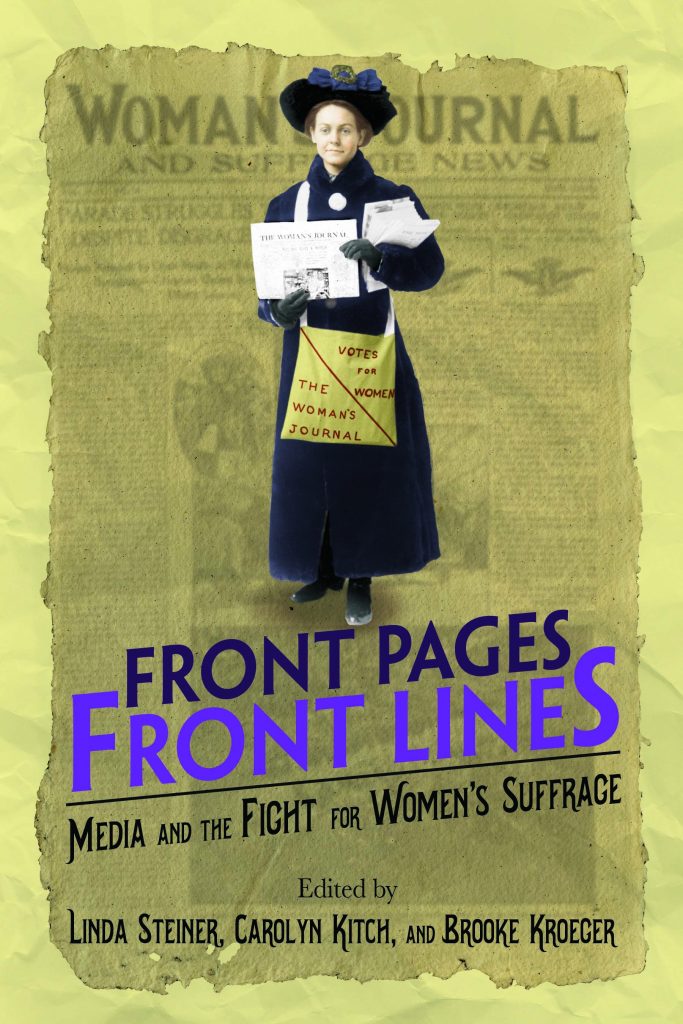
Front Pages, Front Lines: Media and the Fight for Women’s Suffrage
By Linda Stiener
Front Pages, Front Lines offers new research on media issues related to women’s suffrage, incorporating innovative approaches to social movements and counter-movements, media theory, memory studies, and historiography. The collection includes overlooked topics such as the participation of African American and religious media, coverage of black suffragists, suffragist and anti-suffrage rhetorical strategies, the role of social and media elites, and the impact of white masculinity on press coverage.
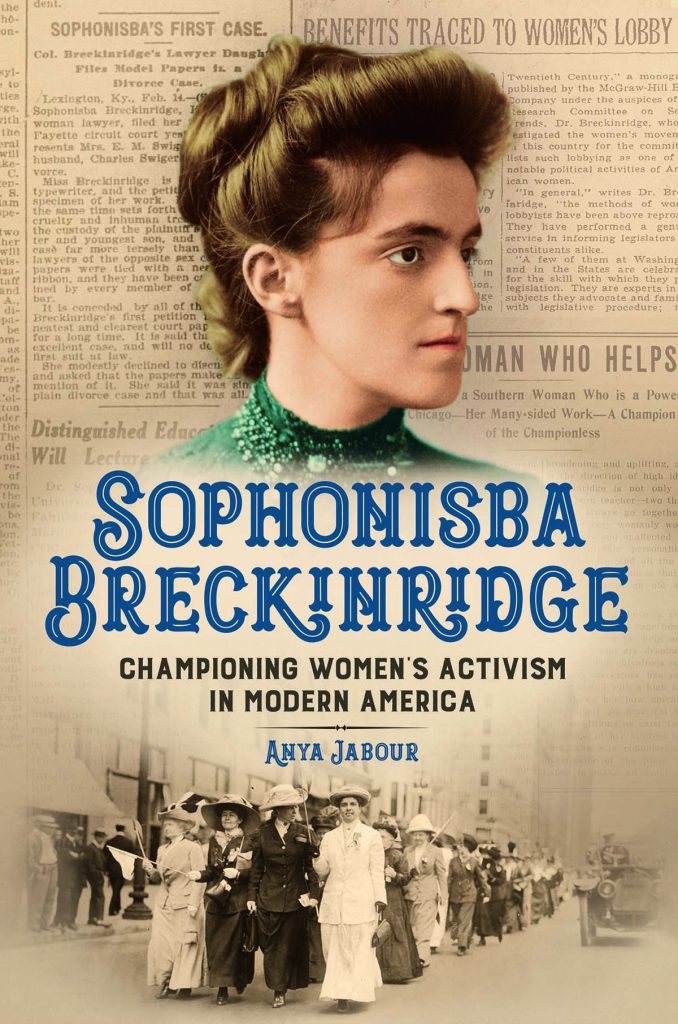
Sophonisba Breckinridge: Championing Women’s Activism in Modern America
By Anya Jabour
Sophonisba Breckinridge’s remarkable career stretched from the Civil War to the Cold War. She took part in virtually every reform campaign of the Progressive and New Deal eras and became a nationally and internationally renowned figure. During the long fight for equal suffrage, she spearheaded the successful campaign for woman suffrage in Illinois and served as an officer of the National American Woman Suffrage Association.
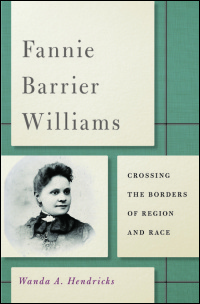
Fannie Barrier Williams: Crossing The Borders of Region and Race
By Wanda A. Hendricks
In this first biography of Fannie Barrier Williams, Wanda A. Hendricks focuses on the critical role geography and social position played in Williams’s life, illustrating how the reform activism of Williams and other black women was bound up with place and space. By highlighting how Williams experienced a set of freedoms in the North that were not imaginable in the South, this clearly written, widely accessible biography expands how we understand intellectual possibilities, economic success, and social mobility in post-Reconstruction America.
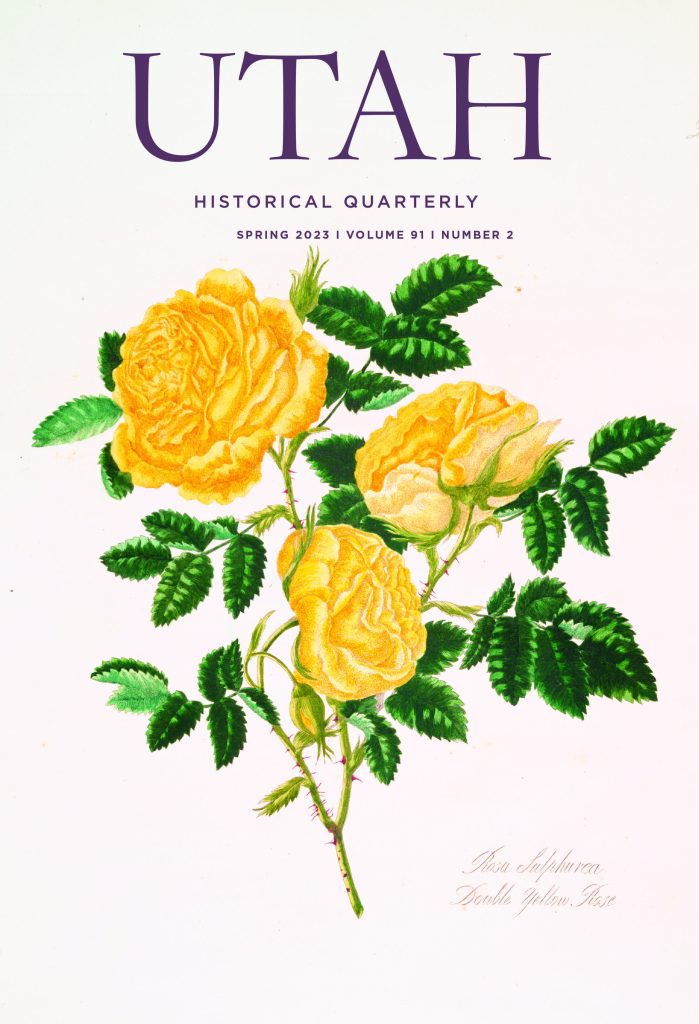
By Elsie Grow
The actions of Utah suffragists in 1895 reinforced the crucial role of Utah in the history of suffrage in the United States. The first woman to cast a ballot under an equal suffrage law was in Utah Territory in 1870, helping start the cascade of events that would eventually lead to all American women having the right to vote.
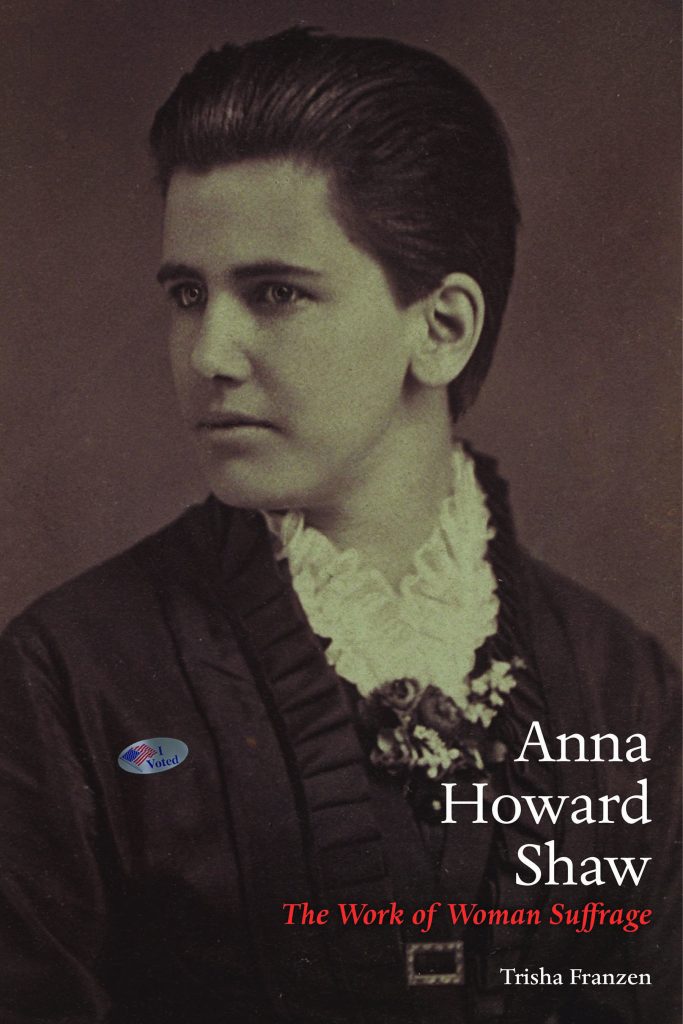
Anna Howard Shaw: The Work of Woman’s Suffrage
By Trisha Franzen
Acknowledged by her contemporaries as the most outstanding woman suffrage orator of her time, Anna Howard Shaw (1847-1919) has nonetheless received minimal attention from historians. Trisha Franzen rectifies that oversight with this first scholarly biography of Shaw. Challenging traditional gender boundaries throughout her life, she put herself through college, worked as an ordained minister and a doctor, and built a tightly-knit family with her secretary and longtime companion Lucy E. Anthony.
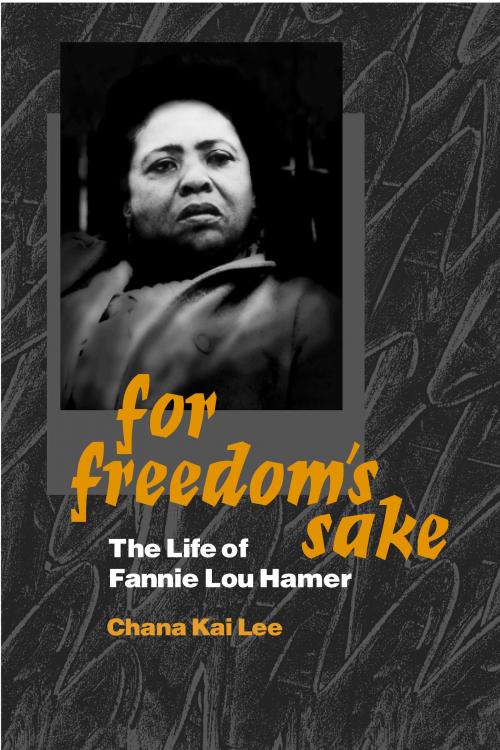
For Freedom’s Sake: The Life of Fannie Lou Hamer
By Chana Kai Lee
In this biography, Chana Kai Lee documents Fannie Lou Hamer’s lifelong crusade to empower the poor through collective action, her rise to national prominence as a civil rights activist, and the personal costs of her ongoing struggle to win a political voice and economic self-sufficiency for blacks in the segregated South. Lee traces Hamer’s early work as a field secretary for the Student Nonviolent Coordinating Committee in rural Mississippi, documenting the partial blindness she suffered after being arrested and beaten by local officials for leading a group of blacks to register for the vote.
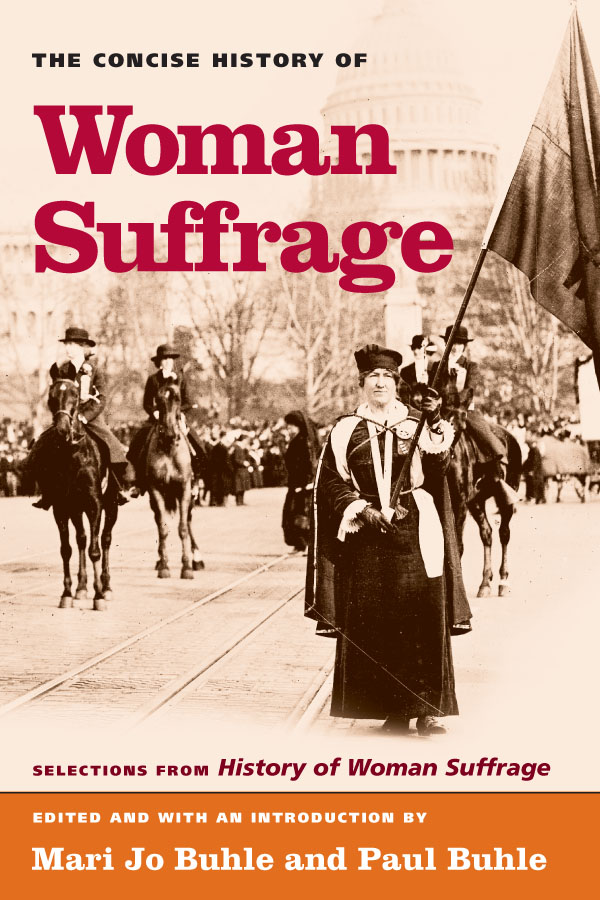
Edited and with an Introduction by Mari Jo Buhle and Paul Buhle
In their Concise History of Woman Suffrage, Mari Jo Buhle and Paul Buhle have revitalized this classic text by carefully selecting from among the original six-volume History of Women Suffrage best material. The eighty-two chosen documents, now including interpretative introductory material by the editors, give researchers easy access to material that the original work’s arrangement often caused readers to ignore or to overlook.
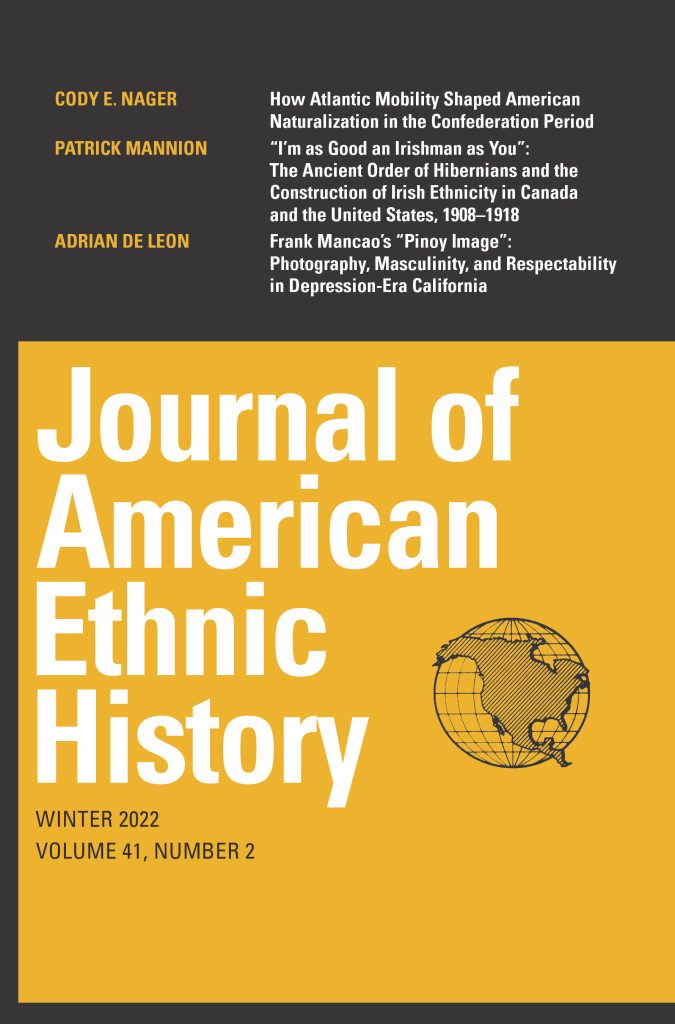
By Tiffany Jasmin González
In Cathleen Cahill’s Recasting the Vote, Cahill focuses on the experiences of Latinas, Native women, Black women, and Chinese women, and argues that women of color are central to the fight for the vote at the turn of the twentieth century. This book has set the bar for understanding the historical implications of the suffrage movement through the eyes of women of color in early twentieth-century America.
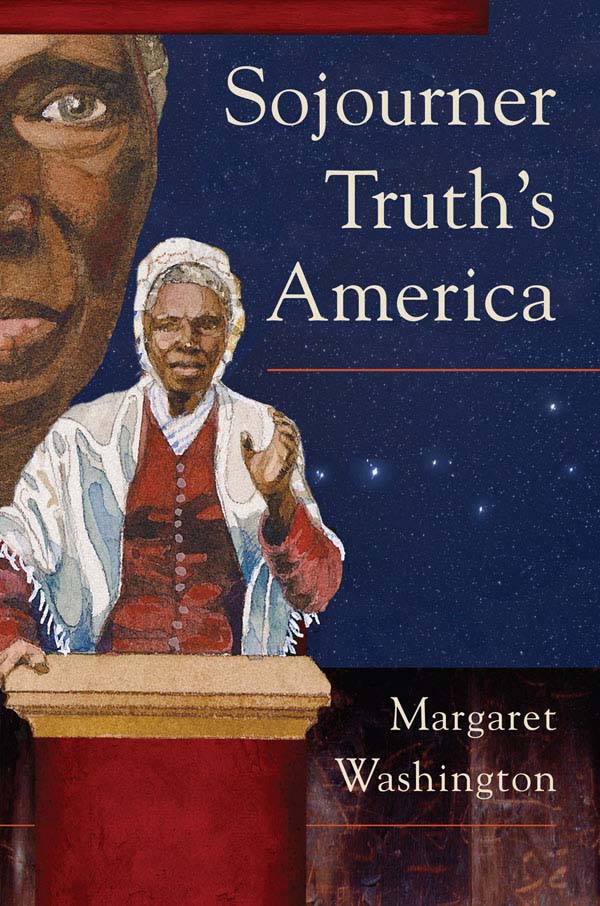
By Margaret Washington
This fascinating biography tells the story of nineteenth-century America through the life of one of its most charismatic and influential characters: Sojourner Truth. Washington’s biography of this remarkable figure considers many facets of Sojourner Truth’s life to explain how she became one of the greatest activists in American history. Truth’s awakening during America’s progressive surge then propelled her ascendancy as a rousing preacher and political orator despite her inability to read and write. She was an active and vocal proponent of women’s rights and suffrage.
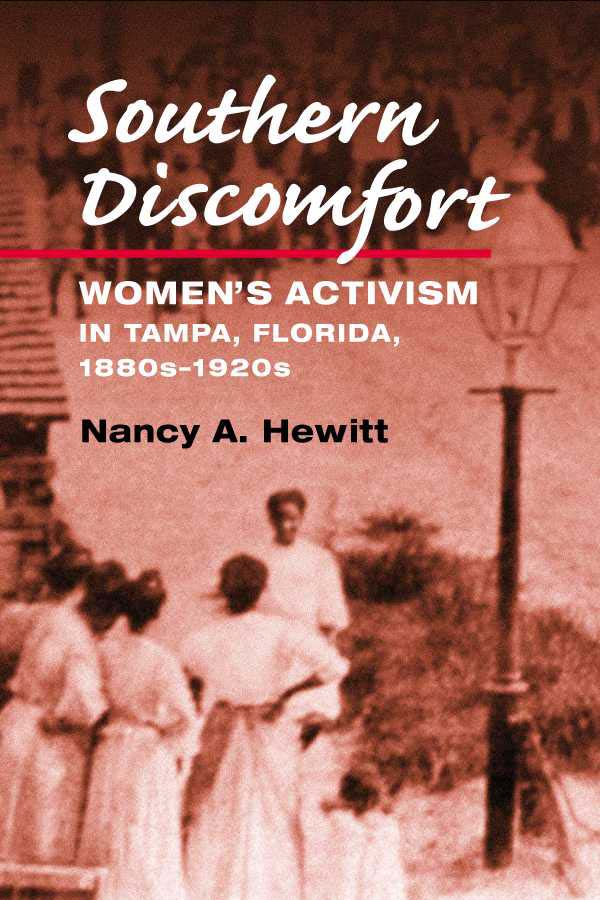
Southern Discomfort: Women’s Activism in Tampa, Florida, 1880s-1920s
By Nancy A. Hewitt
The Cigar City of Tampa, Florida, never fit comfortably into the biracial mold of the New South. In Southern Discomfort, highly regarded historian Nancy A. Hewitt explores the interactions among distinct groups of women–native-born white, African American, Cuban and Italian immigrant women–that shaped women’s activism in this vibrant, multiethnic city. Southern Discomfort emphasizes the process by which women forged and reformulated their activist identities.

Beyond Respectability: The Intellectual Thought of Race Women
By Brittney C. Cooper
Beyond Respectability charts the development of African American women as public intellectuals and the evolution of their thought from the end of the 1800s through the Black Power era of the 1970s. Eschewing the Great Race Man paradigm so prominent in contemporary discourse, Brittney C. Cooper looks at the far-reaching intellectual achievements of female thinkers and activists like Anna Julia Cooper, Mary Church Terrell, Fannie Barrier Williams, Pauli Murray, and Toni Cade Bambara. As Cooper shows, their body of work critically reshaped our understandings of race and gender discourse.

By James Weber Linn
Jane Addams is most widely remembered as a founder of Hull House, but her social vision extended far beyond Chicago’s Halsted Street. The first real adventurer in the unexplored territory of social amelioration in America, Addams worked tirelessly on behalf of a multitude of social causes, including industrial and educational reform, drug laws, sanitation, disaster relief, and food purity. In 1931 she won the Nobel Prize for Peace, a tribute to the decades of energy and eloquence she devoted to eradicating intolerance and elevating human life to a more humane standard. She was also active in the women’s suffrage movement as an officer in the National American Women’s Suffrage Association.
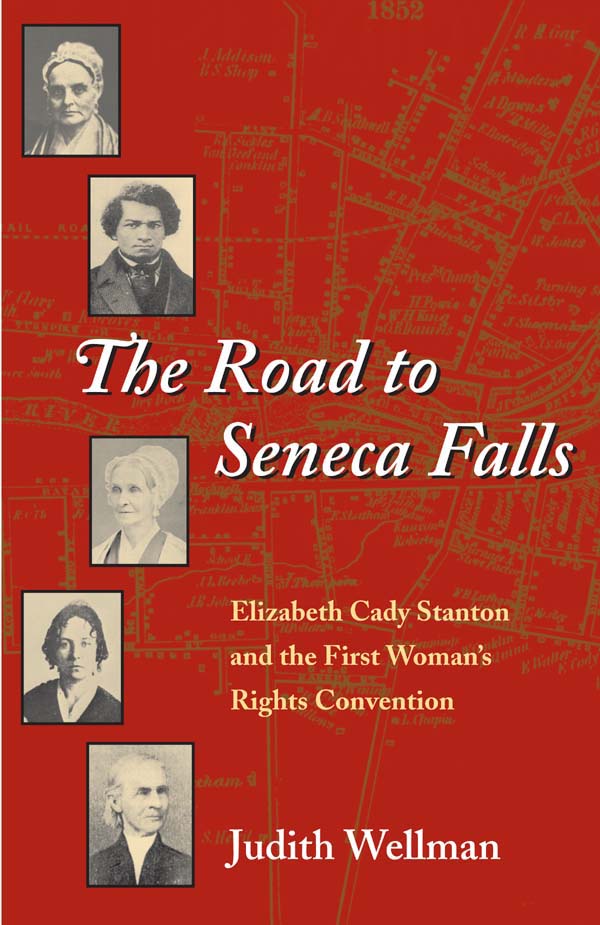
The Road To Seneca Falls: Elizabeth Cady Stanton and the First Woman’s Rights Convention
By Judith Wellman
Rather than working heavy-handedly downward from their official “Declaration of Sentiments,” Wellman works upward from richly detailed documentary evidence to construct a complex tapestry of causes that lay behind the Seneca Falls convention, bringing the struggle to life. Wellman shows that the anti-slavery movement, radical Quakers, and the campaign for legal reform under a common cause converged not only in Seneca Falls, but also in the life of women’s rights pioneer Elizabeth Cady Stanton.
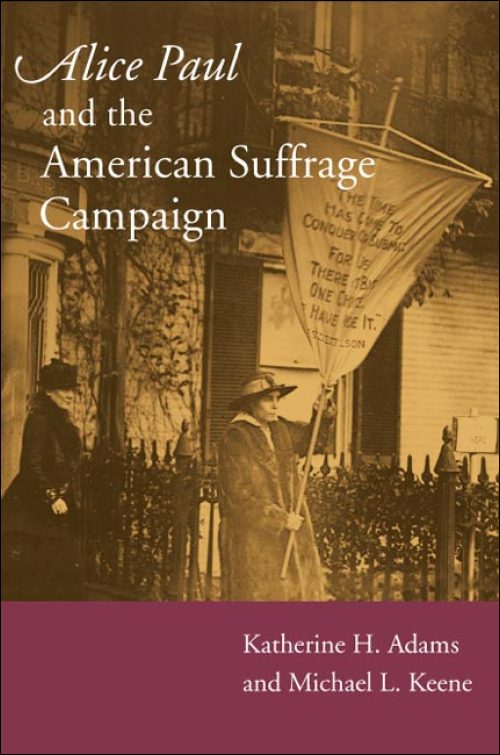
Alice Paul and the American Suffrage Campaign
By Katherine H. Adams & Michael L. Keene
Alice Paul and the American Suffrage Campaign narrates the remarkable story of the first person to picket the White House, attempt a national political boycott, burn the president in effigy, and lead a successful campaign of nonviolence. This groundbreaking study fills the gap in the historical record that past historical records leave out about Paul’s contributions to women’s suffrage. Paul’s controversial approach, the authors assert, was essential in changing American attitudes toward suffrage.
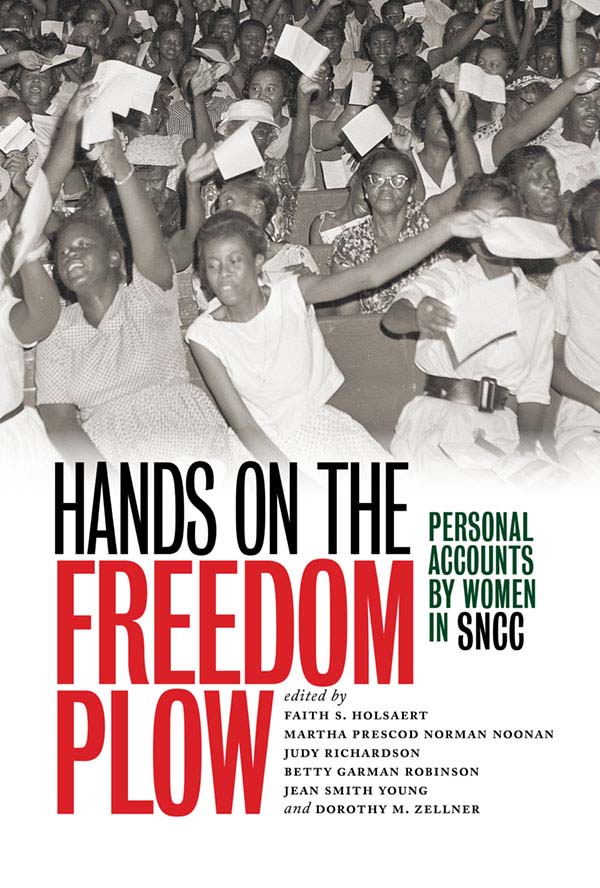
Hands on the Freedom Plow: Personal Accounts by Women in SNCC
Edited by Faith S. Holsaert, Martha Prescod Normal Noonan, Judy Richardson, Betty Garman Robinson, Jean Smith Young, and Dorothy M. Zellner
In Hands on the Freedom Plow, fifty-two women in the Student Nonviolent Coordinating Committee ( SNCC ) acquired new skills, experienced personal growth, sustained one another, and even had fun in the midst of serious struggle. These intense stories on the front lines of the Civil Rights Movement depict women, many very young, dealing with extreme fear and finding the remarkable strength to survive.
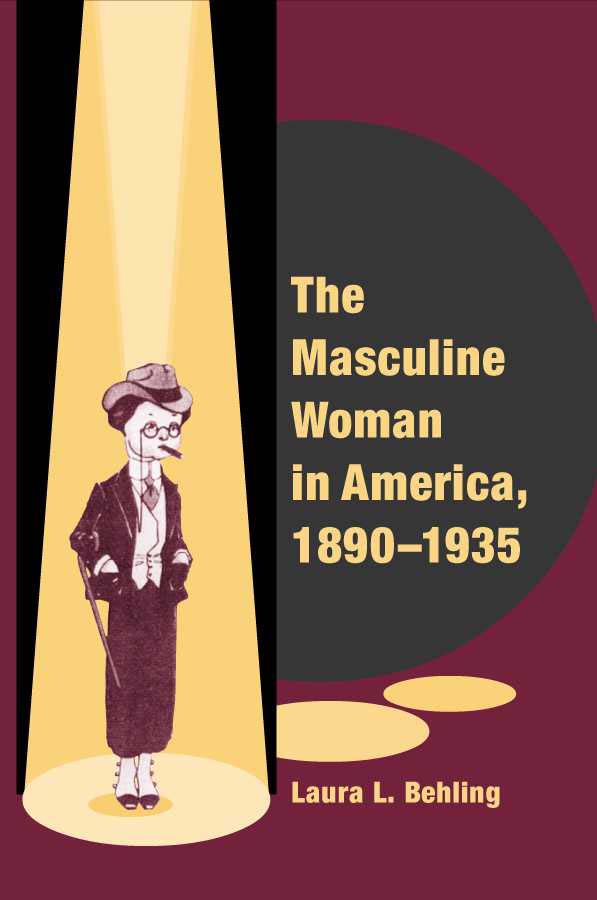
The Masculine Woman in America, 1890-1935
By Laura L. Behling
The Masculine Woman in America, 1890-1935 demonstrates that the women’s suffrage movement did not so much suggest alternatives to women’s gender and sexual behavior as it offered men and women afraid of perceived changes a tangible movement on which to blame their fears. The suffrage movement’s efforts to secure social and political independence for women were translated by a fearful society into a movement of unnatural “masculinized” women and dangerous “female sexual inverts.”

Lucretia Mott Speaks: The Essential Speeches and Sermons
By Luecretia Mott; Edited by Christopher Densmore, Carol Faulkner, Nancy Hewitt, and Beverly Wilson Palmer
Committed abolitionist, controversial Quaker minister, tireless pacifist, fiery crusader for women’s rights–Lucretia Mott was one of the great reformers in America history. Drawing on widely scattered archives, newspaper accounts, and other sources, Lucretia Mott Speaks unearths the essential speeches and remarks from Mott’s remarkable career.

The Selected Letters of Florence Kelley, 1869-1931
Edited by Kathryn Kish Sklar & Beverly Wilson Palmer
As head of the National Consumers’ League Florence Kelley led campaigns that reshaped the conditions under which goods were produced in the United States. An ally of W.E.B. Du Bois, she was a founding member of the National Association for the Advancement of Colored People and served on its board for twenty years. She also joined the fight for women’s rights as the Vice President of the National American Woman Suffrage Association. Rendered in Kelley’s vivid, often combative prose, these letters provide an intimate view into the personal life of a dedicated reformer
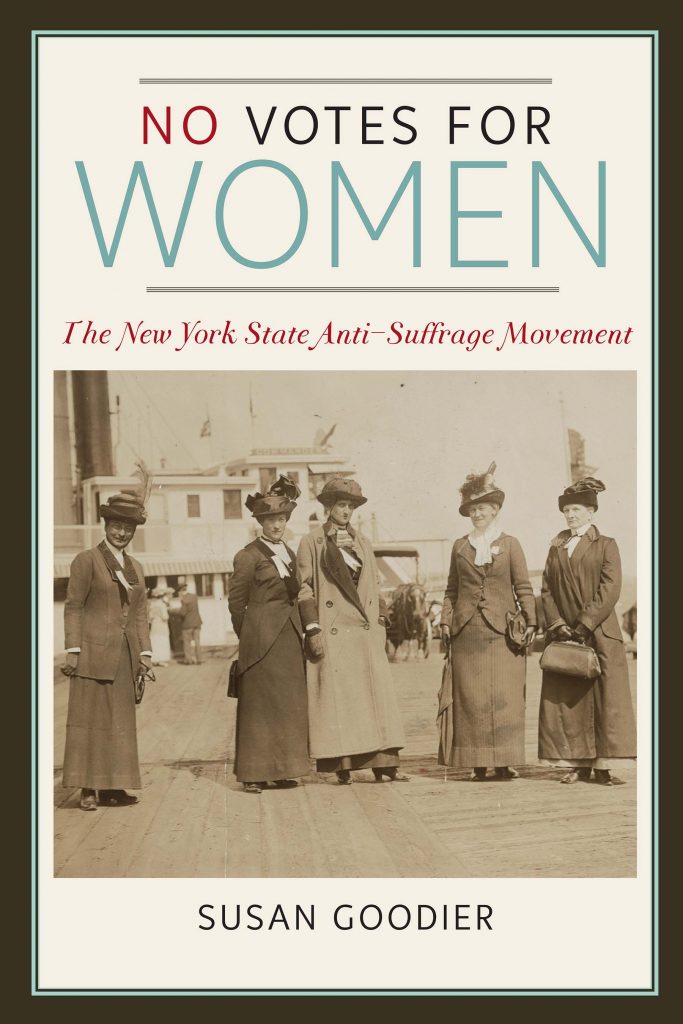
No Votes for Women: The New York State Anti-Suffrage Movement
By Susan Goodier
No Votes for Women: The New York State Anti-Suffrage Movement explores the suffrage movement in New York State by delving into the stories of women who opposed the expansion of voting rights to women. The conservative women who fought against suffrage encouraged women to retain their distinctive feminine identities as protectors of their homes and families, a role they felt was threatened by the imposition of masculine political responsibilities.
